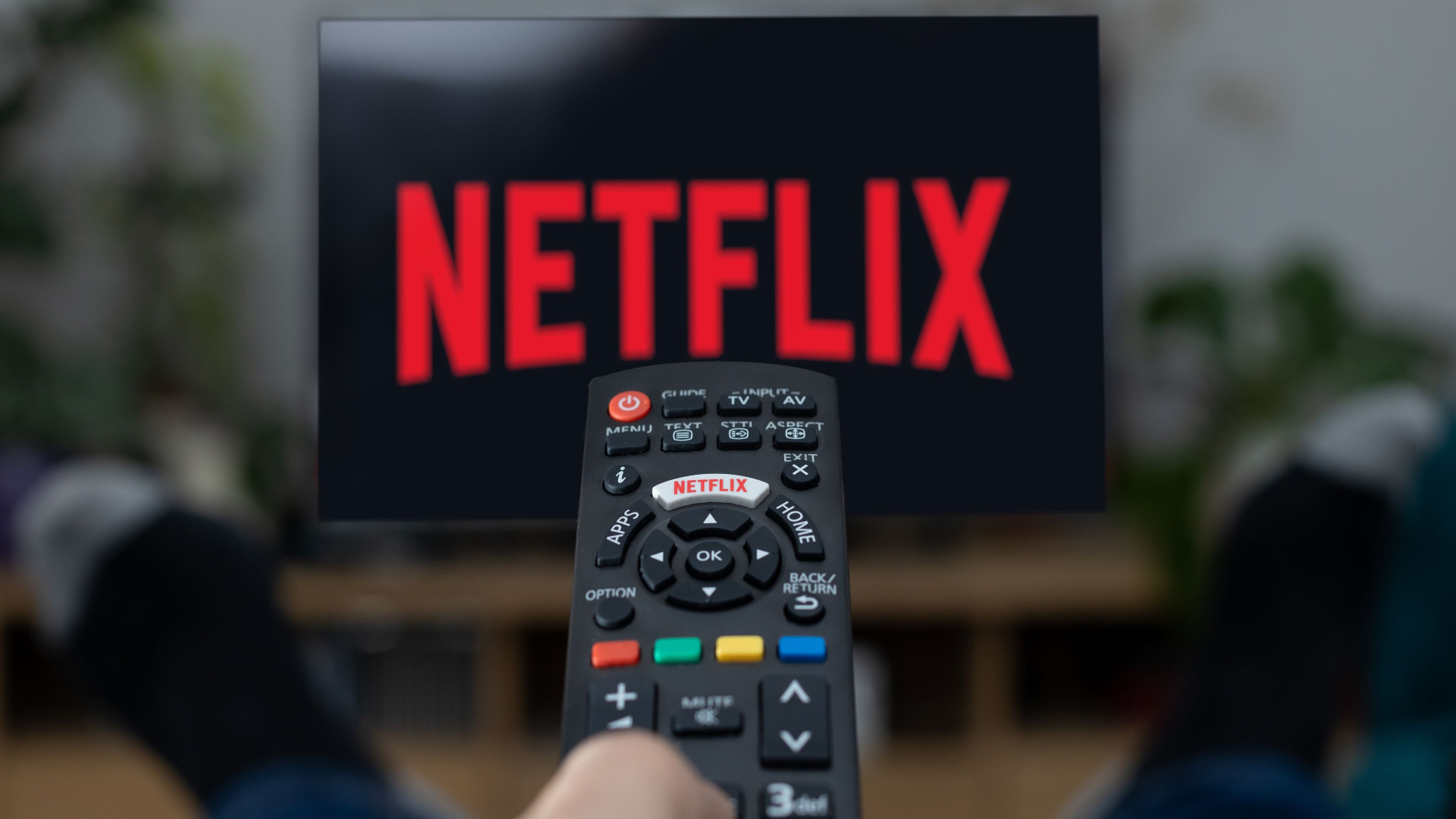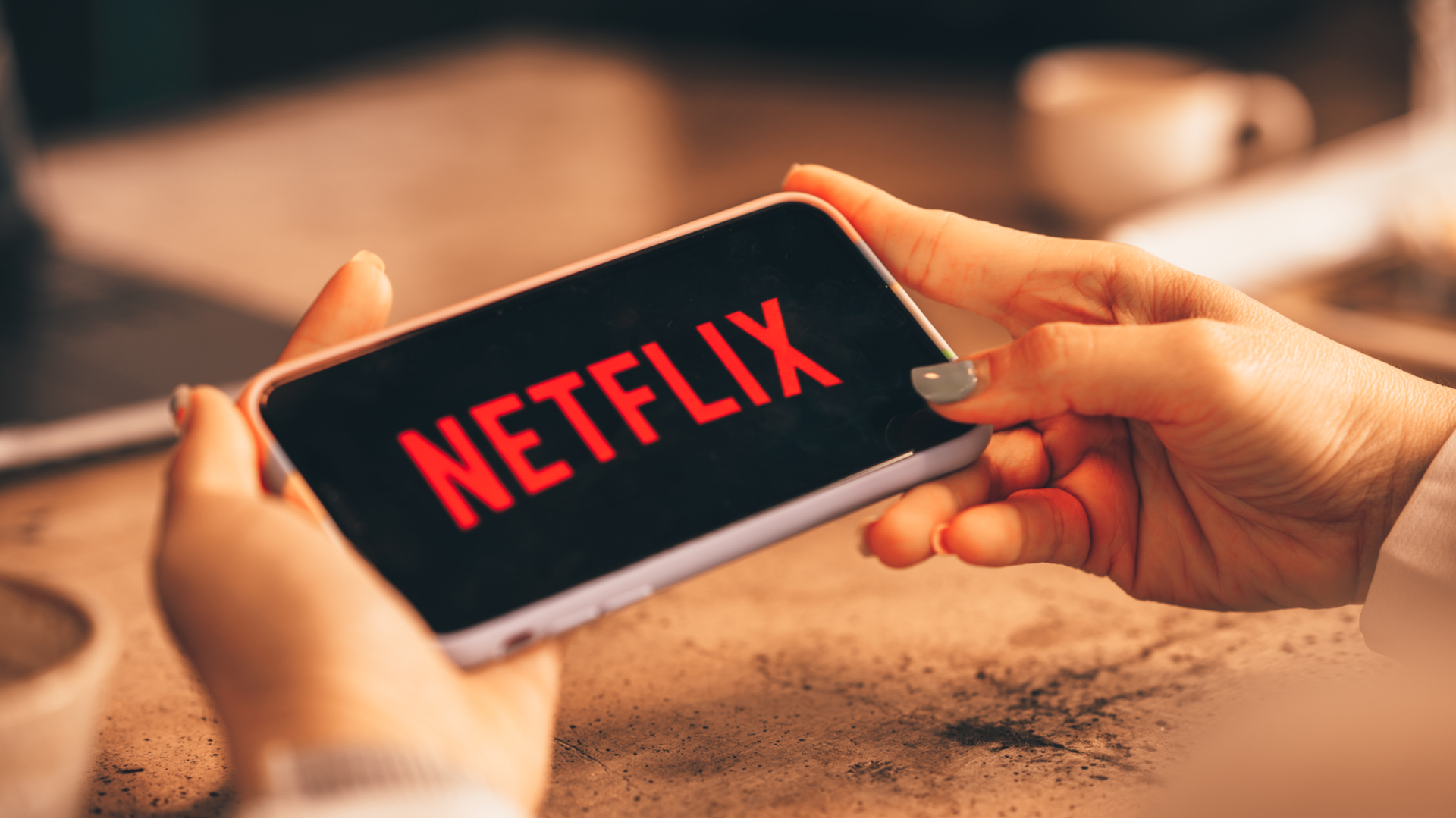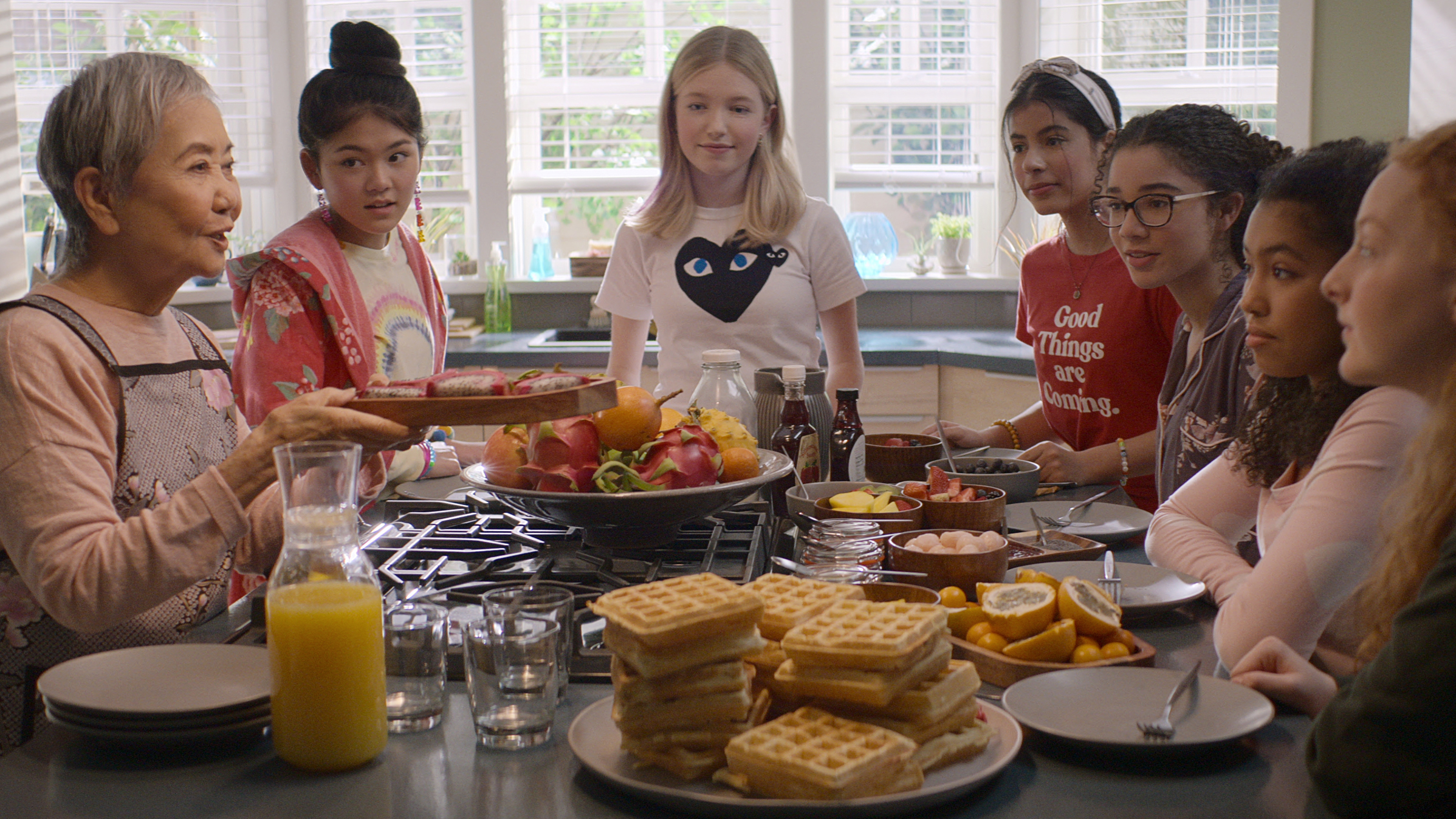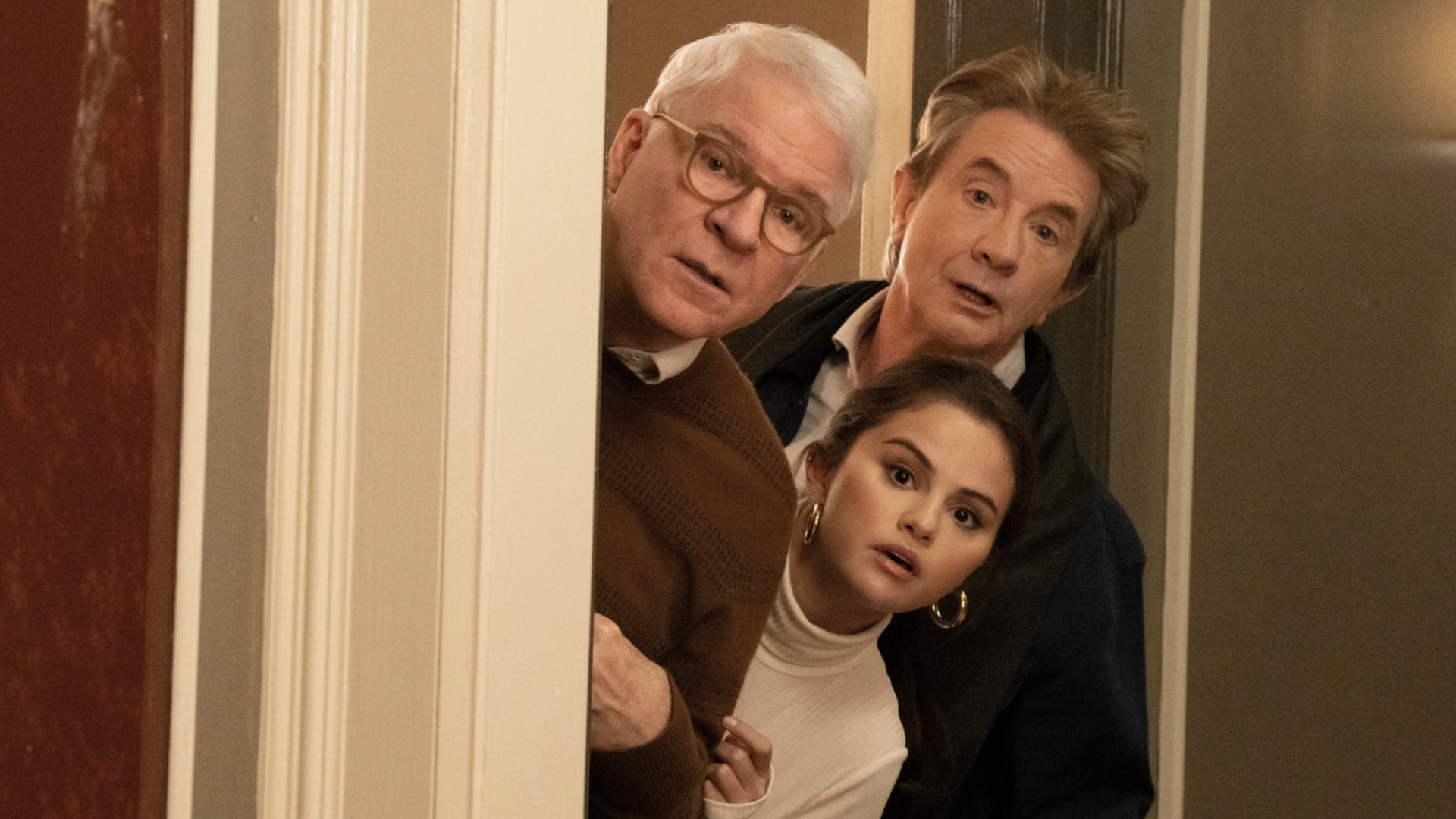Should Netflix ditch its binge model? It feels like now or never
Opinion: To binge or not to binge...

Sign up for breaking news, reviews, opinion, top tech deals, and more.
You are now subscribed
Your newsletter sign-up was successful
2022 has been a year of turmoil for Netflix, a year where the streaming giant's executives have been forced to make decisions that they thought they would never have to make.
For years, Netflix's co-CEOs Ted Sarandos and Reed Hastings have dismissed the prospect of joining Hulu, Peacock, and HBO Max in allowing advertisers on their platform in exchange for offering subscribers a cheaper subscription rate. But things have moved fast.
At the start of March, company Chief Financial Officer Spencer Neumann was still being very conservative about the prospect and would only go as far as saying that he could “never say never” when asked about the idea of introducing adverts on Netflix and went as far as clarifying that the move was “not something in [the brand’s] plans right now."
Then, on April 20, during an earnings call, Netflix head honcho Reed Hastings revealed that the streaming service was then “quite open” to the possibility of an advert-supported tier.
An ad-supported tier was then confirmed in July at the company's next earnings call, but it was made clear that it wasn't on the cards until 2023 and would be backed by a platform built by Microsoft.

Then that changed, and, in a new report published at the start of September, it was revealed that Netflix executives had taken the decision to launch the new ad-supported tier on November 1 in most of the streamer's major markets, including the US, Canada, the UK, France, and Germany. Why so fast? Because the executives are looking to steal a march on Disney Plus, which launches its ad-supported tier at the start of December.
So commercials are coming. Netflix's executives are responding to a drop in subscribers and going with the market and breaking the habit of a lifetime. But is this where it ends? Will the advent of ads on the platform lead to another golden rule being broken? Will Netflix's long-held, almost religious dedication to dropping an entire season of a new show all at once be ditched? Reports are beginning to suggest it might.
Sign up for breaking news, reviews, opinion, top tech deals, and more.
Really?
According to Matthew Belloni, once of the Hollywood Reporter, now author of a newsletter for Puck, Netflix's co-founder Hastings is finally thinking about making a change.
Belloni writes that Hastings "...has seemed unwilling to pivot off the binge mode" in the past but "now, it appears, he does".
It's a line in a newsletter from a well-connected journalist, not a Netflix press release, so it may well come to nothing at all. But given Hastings, Sarandos and their top team are ditching other habits of a lifetime, it seems reasonable to ask if the binge-model, the content bomb, the strategy that has marked Netflix apart from everyone else, is fit for purpose any more.
Breaking the habit of a lifetime
Netflix's strategy of dropping a whole season of shows all at once isn't just a whim or a point of difference, it feeds into everything the streaming service does.
Earlier in the year, when Netflix axed The Babysitters' Club, showrunner Rebecca Shukert sat down with Vulture to explain what had happened. She said that the streaming giant doesn't just care how many people watch your show, but how they do so.
At the time, Shukert said: "Completion rates are a big deal. At Netflix, it’s more about if your show works on the platform than if the platform is working for your show. They want people to watch it a certain way, and they want shows that people will watch that way – not shows that people want to watch in their own way."

That's the heart of the matter. When commissioning something, or deciding whether to keep a show for another season, the sheer number of people who watch a given show aren't enough, Netflix's executives want viewers to watch it fast and move on.
Shukert said she thought that disproportionately affected The Babysitters' Club, which was targeted at teenagers whose parents wouldn't want them binge-watching a 10-episode season in a couple of days.
Felicia D. Henderson, showrunner on teen drama First Kill, another recent cancelation, also bemoaned Netflix's decision and talked about quick completion rates or lack of.
So, were Netflix to move away from this model and back to something resembling a weekly schedule, it wouldn't just be a strategic pivot, it would be unpicking the fabric of Netflix itself. But is it the right time to do so? As far as this writer is concerned, absolutely.
Time to breathe...
In the battle to seem new and fresh and exciting, Netflix's abandonment of traditional weekly release models felt like a shot across the bow, and for some shows, it's still the way to go, but not for everything.
Take two current examples. The Rings Of Power and House of The Dragon. With their weekly release plans, every episode feels like an event, people are given time to speculate on what might happen, take stock of what just has happened, and, people who might be latecomers can catch up quickly. Netflix's feeding frenzy approach might work well for Selling Sunset, but every episode of Stranger Things and The Crown deserves the same chance to be picked apart and built up to once again.

All Netflix's rivals mostly pick and choose. Hulu dropped Pistol all at once, but drip-fed Only Murders In The Building week by week, an approach that suited a show built on surprise twists and suspense. Disney goes weekly with their Star Wars and Marvel franchises, and so does HBO Max, mostly. Prime Video has done both. Having that degree of flexibility can only be a good thing,
When it came to this run of Stranger Things and you've got runtimes over two hours, Netflix's hope that you'll think “just one more” goes out the window when that is a feature-length commitment.
It feels like now or never
The introduction of an ad-supported tier is a new world for Netflix and it's the perfect opportunity to truly break from the past and try a new release format. You'd think it would be more attractive to advertisers, selling against 10 weeks of a prestige show, rather than a single weekend's worth of viewing.
If they stick with the model beyond this move, when will they move? Maybe never, and that's in the gift of Sarandos, Hastings, and their team, but the current model does feel like it's straining. Shows get huge spikes and then people move on, and if shows don't get off to a good start, they quickly get lost and forgotten. Netflix's one size fits all approach doesn't work for every show, some need time to breathe, build hype, and command an audience.
Netflix's executives may decide they want to stick with their tried and trusted approach, but they should not do it just because they believe it's a point of difference in a crowded market. Every other streamer gets to pick and choose, why would you give yourself fewer choices?

Tom Goodwyn was formerly TechRadar's Senior Entertainment Editor. He's now a freelancer writing about TV shows, documentaries and movies across streaming services, theaters and beyond. Based in East London, he loves nothing more than spending all day in a movie theater, well, he did before he had two small children…